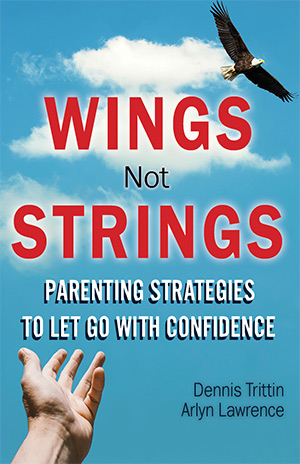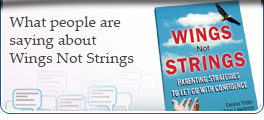How Do You Rate on Money Matters?
Everyone is talking about financial literacy these days, it seems. Which is a good thing! Too many people learn the hard way the price for being financially illiterate, or just plain overconfident. For example, 77% of teens polled in a recent study consider themselves “financially savvy,” but only 31% of them knew anything about how credit card interest and fees work, or even what a credit score is. Scary! The bottom line: many young people are entering the “real world” with very little working knowledge of things financial. These chickens will come home to roost.
But just what, exactly, does it mean to be financially literate, and how will you know it when you get there?
The best way is to develop a list of desired financial outcomes and use it as a destination guide. This is also a great tool if you are a parent, educator, or mentor who is coaching a young person toward independent living in the “real world.” Here’s what EVERYONE should know about money to be considered financially literate:
How to earn it:
- Select your career after comprehensively evaluating your interests, skills, preferences, training requirements, and the employment outlook
- Learn to persuasively market yourself
- Build your competitive edge in the workplace
How to manage it:
- Have a working knowledge about the economy, investing, budgeting, debt, and banking
- Be a disciplined planner, skillful earner, wise investor, prudent consumer, cautious debtor, and cheerful giver
- Always “live within your means”
How to distribute it:
- Give, invest, then spend (not the reverse!); conservative rule is 10/20/70%
- Develop a budget and regularly analyze your spending
- Spend less than you earn to generate “positive cash flow”
- Resist the temptation to “keep up with the Jones’s”
- Understand the difference between fixed, variable, and periodic expenses
- Avoid high fixed expenses (keep housing costs < 35%) that can’t be reduced
- Save up for major expenditures and use debt sparingly
- Avoid credit card purchases that can’t be paid off at month end
- Resist the temptation to impulse buy; be a value conscious consumer
How to bank it:
- Develop a strong credit rating and be someone your banker will lend money to with total confidence! That means having a strong balance sheet and positive and rising net worth (assets minus debts).
- Regularly balance your checking account.
How to invest it:
- Invest early, regularly, and as much as you can in a globally diversified, long-term investment program according to your risk profile ($12.15 a day from age 23 at 6% annually makes you a millionaire at 65!)
- Assess your risk tolerance and develop an appropriate asset allocation (% in stocks/bonds); it changes as you age with a ballpark of 100-age in stocks
- Think buy low, sell high, and avoid taking more risk when the market is high/bailing out when markets are down; resist the temptation to “time the market”
- Avoid chasing hot investments and buying on tips/rumors
- Build an emergency fund equal to 4-6 months of expenses; then develop a monthly investment program for your life
Keep these objectives in mind both now and in the future as your earnings evolve. Periodically review how you’re doing in each of these areas. If you can successfully achieve these goals, you’ll be in excellent financial shape. That's what financial literacy looks like!
Where do you land when evaluating yourself on these criteria? Give yourself a score on a scale of one to five on each. Ask someone close to you, such as a parent or spouse, to do the same for you. Do others rate you with the same degree of financial literacy as you assign yourself? Share your results with us; we’d love to hear your feedback and ideas!
Tagged as: financial literacy, financial goals, spending, investing, saving, money, career, finance




















Hi Dennis,
Just to let you know when I clicked to read more about your Laughter passage, the link sent me to the investing information... Maybe that was supposed to make me laugh? (Just Kidding!)
I would love to read what you had to say about laughter. Thanks for the weekly emails. I do my best to read them as they have sound, sensible information that is always great to be reminded about!
Have a wonderful weekend,
Julie Jessum
Reply by Dennis Trittin - 8/10/2013 4:29:58 PM
Thanks Julie and sorry for the mixup. We fixed it so hopefully you've seen the corrected version. The blog is up on our site for your eyes to see.
Hope all is great with you! Cheers, Dennis